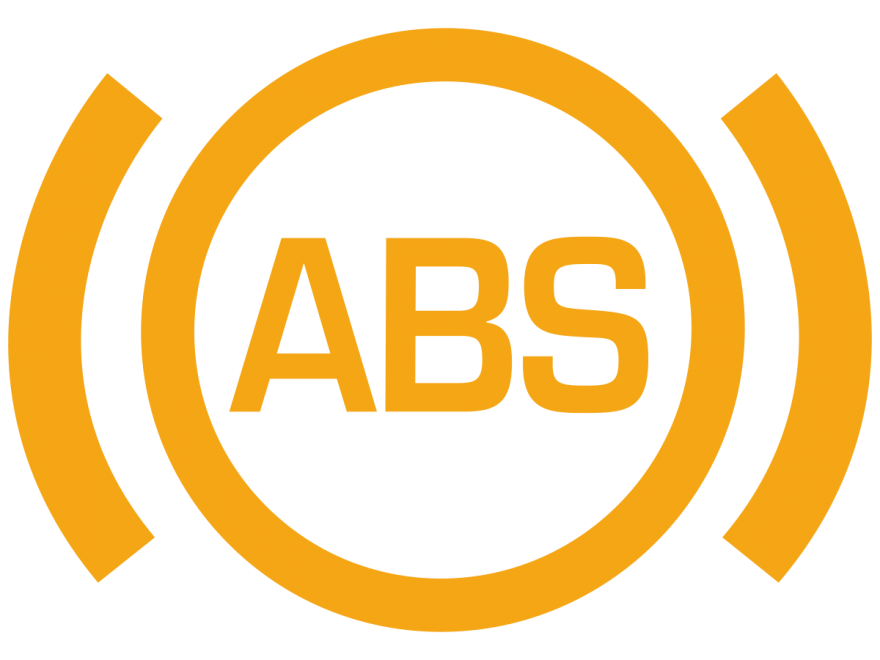What Is an ABS System?
ABS is an anti-skid braking system that prevents the wheels from locking up when you force your vehicle to stop. This automated brake controller applies pressure to the braking system when you press on the foot pedal. Some of its essential functions include:
Electronic stability control (ESC)
Emergency brake assist
Steer control integration
Brakeforce distribution
Traction control
What Is an ABS Code?
An ABS code detects problems associated with your braking system. These warning lights flash on your dashboard when mechanical issues arise due to abnormal signs from the wheel sensors.
Common ABS Triggers
Low battery voltage
Broken wheel speed sensor wire
Bad wheel bearing
Dirty tone ring
Bad ABS module
What’s the Difference Between a Brake Light and an ABS Light?
If you notice your semi-trailer ABS blink a code, it means more intricate issues associated with your ABS module. Unlike brake lights, ABS lights are typically controlled by a computer module. When this light flashes, it appears as a numerical code, which technicians have to diagnose manually.
Brake lights are more straightforward. These warning signals are activated by simple circuits and indicate lower-level mechanical problems such as lack of brake fluid, blown fuses, and parking brake issues.
What Codes Require Immediate Attention?
The simple answer is all codes. Any fault that causes the system to stop operating requires assistance from the Department of Transportation (DOT). Be proactive and plan a maintenance inspection on your truck and trailer if you start to notice any of the following symptoms:
Flashing lights on the trailer: This indicates a fault in the system.
Non-working trailer lights: Sometimes the light will work on the truck, but not on the trailer. When that happens, it means the ABS bulb is burned out and needs to be repaired along with the fault illuminated on your truck’s dash.
Flashing lights on the dash of the truck: This signals a need to replace or repair a failing ABS module.
What’s the Difference Between a Tractor’s ABS Code and a Car’s?
Tractor brakes are built from a variety of moving parts. They operate on air, which often delays the operation. The brakes require service air pressure to operate the foot pedal. The tractor’s ABS disrupts the service air pressure at a certain threshold, which releases the brakes and allows the tire to move.
Unlike tractors and trailers, car brakes have fewer moving parts. These vehicles operate on hydraulic pressure, which is faster than service air.
Can an ABS System Trigger Brake and ABS Faults?
In simple terms, yes, depending on the type of vehicle you drive. If you operate a trailer with an early ABS model, expect your ABS to trigger both lights for any braking-related fault.
How Often Should I Inspect my ABS Control Module?
Drivers and fleet owners should have their ABS technology looked at least once a year. Test your braking system during annual safety inspections. For best results, make sure to plan an inspection after long trips, especially cross-country.
When Should I Replace My ABS System?
Upgrades are essential when you start to experience any of these flaws with your ABS module:
Unresponsive brake pedals: If you notice the pedal requires increased effort to achieve the same amount of braking force, then it’s a sign of a possible issue with the ABS module.
Excessive flashing of ABS lights: Much like a check-engine light, an ABS light shines in an amber color. Sometimes the light turns on periodically to ensure the bulb and module are working. If the dash light doesn’t disappear on its own, then it’s clear that your ABS has a serious issue.
Brake lock-up: Faulty ABS modules may cause erratic brake behavior. If your brakes lock up under normal driving conditions, it’s time to tune-up or replace your ABS. Look out for warning signs such as random clicking noises and irregular brake pumping.
More informaiton about Car Diagnostic Tools,please visit www.obd2tool.com
